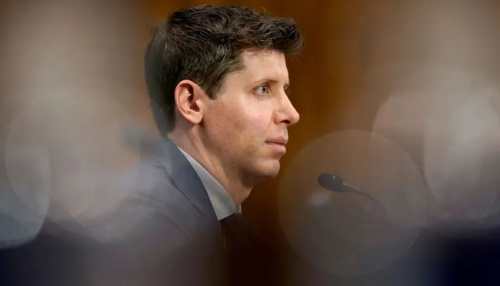- News>
- Technology
OpenAI CEO Sam Altman Is Striving To Avoid Major Issues In the Future of AI

Altman underscored how society is more lenient toward mistakes made by human taxi drivers compared to the lower tolerance for errors exhibited by self-driving cars.
New Delhi: The CEO of OpenAI discussed the future of artificial intelligence (AI) and its potential effects on human society during a compelling panel discussion at the World Economic Forum in Davos. Led by CNN's Fareed Zakaria, the conversation explored the fundamental abilities of humans and the difficulties associated with the advancement of artificial general intelligence (AGI).
Responding to Zakaria's inquiry regarding human strengths compared to AGI, Altman acknowledged that the panel including himself found it challenging to offer a compelling response. He emphasized that the fundamental aspect of human behavior is forgiveness. Altman noted that humans tend to forgive each other's mistakes but the same level of forgiveness is not extended to errors made by machines.
Illustrating autonomous driving, Altman underscored how society is more lenient toward mistakes made by human taxi drivers compared to the lower tolerance for errors exhibited by self-driving cars. This inconsistency in forgiveness poses a notable challenge as AI progresses.
The conversation also addressed humans' capacity to comprehend and address the interests of others. Altman proposed that individuals inherently grasp human interests, a viewpoint not fully shared by fellow panelist Marc Benioff, CEO of Salesforce. Benioff speculated that AI might soon assume the role of moderators, anticipating and addressing the audience's needs without human involvement.
The discussion shifted to the intricate equilibrium between AI and human decision-making. Altman affirmed that despite AI progress humans would remain pivotal in shaping decisions for the world. He maintained the belief that humanity would uphold the power to influence the future, recognizing the unique aspects aspects of general-purpose cognition.
Altman and Benioff both recognized the escalating concerns accompanying the progression of AI towards AGI. Altman anticipated a rise in societal stress and tension as AGI development continued drawing from his personal experience during a brief period when he temporarily lost control of OpenAI. He detailed the heightened emotions and stress linked to responsibly navigating the journey towards potent AI.
In a statement, Benioff stressed the significance of ensuring the responsible advancement of AI, expressing a desire to prevent harm and avoid catastrophic incidents similar to a Hiroshima moment.
